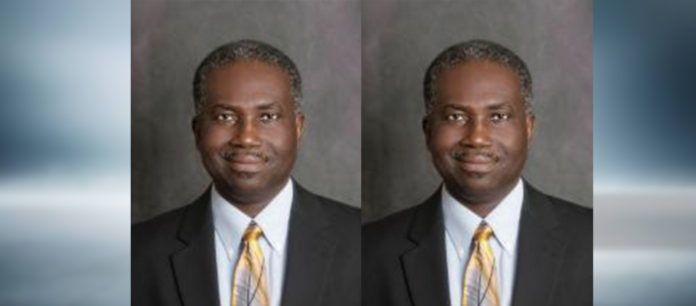My recollection of my father in my life is of fleeting moments when he would dart in and out. My mother sent me to live with him in Obuasi when I was five or six. I cried so much that he sent me back to my mother in Kumasi. After that, I recall him visiting a few times and barely spending any time at all with me. For a time, I lived with his younger, Robert, at Amakom, Kumasi. Indeed, I know more about my uncle Robert than about my father.
Uncle Robert was very kind and caring. I cannot say the same of my father; I did not know him enough to say one way or the other. Even when I left to live with one of my maternal uncles at Ahinsan, he regularly visited to check on me. Sometimes, on my way to school at the Government Boys’ School in Kumasi, I would stop at his place of work, Krola, and eat breakfast with him.
I am glad I had the chance to see him at Obohen, one final time in the summer of 2002. I was able to tell him how much I liked him and appreciated what he had done for me as a child. He passed a few months after I saw him.
My father was detained after the 1966 coup d’état that toppled Nkrumah’s government. I remember a friend of my mother, who was married to one of my father’s younger brothers, the teacher, telling me. I am not sure what reaction she had expected from me; I showed none, I did not feel any.
The last time I saw my father was in 1966, at the Trade Fair Site in Accra. He was in charge of the Fair’s publicity. One of my maternal uncles, Andoh-Mensah, had taken me to his office without warning him or me and deposited me there.
My father and I did not have much to say to each other; we barely knew each other. I told him about Kwesi Lamptey calling me Nkrumah. I was delighted that I saw him, though; it had been several years. I was driven around the site with him for an hour or so, and then my uncle returned for me.
My mother would now and then tell me about talking to him over the phone. She said my father had asked her to change my name back to Nkrumah on a few occasions. Elizabeth Ekua Andoh, the strong-willed and independent woman that she was, did some calculations and informed him that she would gladly do so as soon as he reimbursed her for all the expenses, she had incurred in raising me.
I do not know exactly how much she was asking. Still, I can imagine that the figure was not to his liking, and as a result, not much came out of it; and so, it is that I remained an Andoh.
When I found out he had had a stroke in the 1980s, I was concerned enough to want to know how he was doing, but I had no direct contact to reach him. Maybe I did not try hard enough. He must have recovered well. In his later years, I heard he became an ambassador to Zambia and then chief in one of the Abura villages as Nana Apprey.
Sometimes, I wonder if I occupied any space at all in his mind. Did he ever think about me? Would he have been proud of me? What would he have said to his three beautiful grandchildren and four great-grandchildren? Did he have any regrets? Why did he not take a more active interest in my life?
When I met him in 2002, my Uncle Robert had tried to explain some of the whys to me, but I did not press him for details. I did not think it would have made any difference. By then, my father had died. The last thing I wanted was to have anything color the shadowy but still positive image I had of him; not bad, not good, just hazy. How many siblings do I have that I do not know? Do they know that they have an older or younger sibling?
I wonder now if I should have tried harder to reconnect. In 1976 when I was doing my national service in Accra, I would sometimes see men that I thought were his age and wonder if they could be my father. I had no physical image of him anywhere in my mind, not the faintest. When I was still very young, I used to have pictures of him somewhere.
But that was a long time ago; whatever image I had of him had disappeared. I cannot remember what he looked like. Was it because whatever it was that would have affixed his visual appearance in my brain refused to do so when I last saw him in 1966? I was old enough then, to have retained the memory, but it did not register.
When I think of my father now, it is more about my uncle Robert Nkrumah, his younger brother. I barely knew my father, I.K. Nkrumah.
Author : Kojo Apprey (Samuel K Andoh)
Samuel K Andoh is a Professor and former Dean of the School of Business, at Southern Connecticut State University.
Disclaimer: The views and opinions expressed in this article are those of the authors and do not necessarily reflect the official policy or position of Ghanaian American Journal. Any content provided by our bloggers or authors are of their opinion and are not intended to malign any religion, ethnic group, club, organization, company, individual or anyone or anything.



[…] with 2 deaths Chinese Doctors Arrive in Italy Nigeria :10 million youth to be employed for… My Father, I.K. Nkrumah: The Father I Barely… My Father, I.K. Nkrumah: The Father I Barely… Miss USA 2019 : Cheslie Kryst dies at… 2 […]